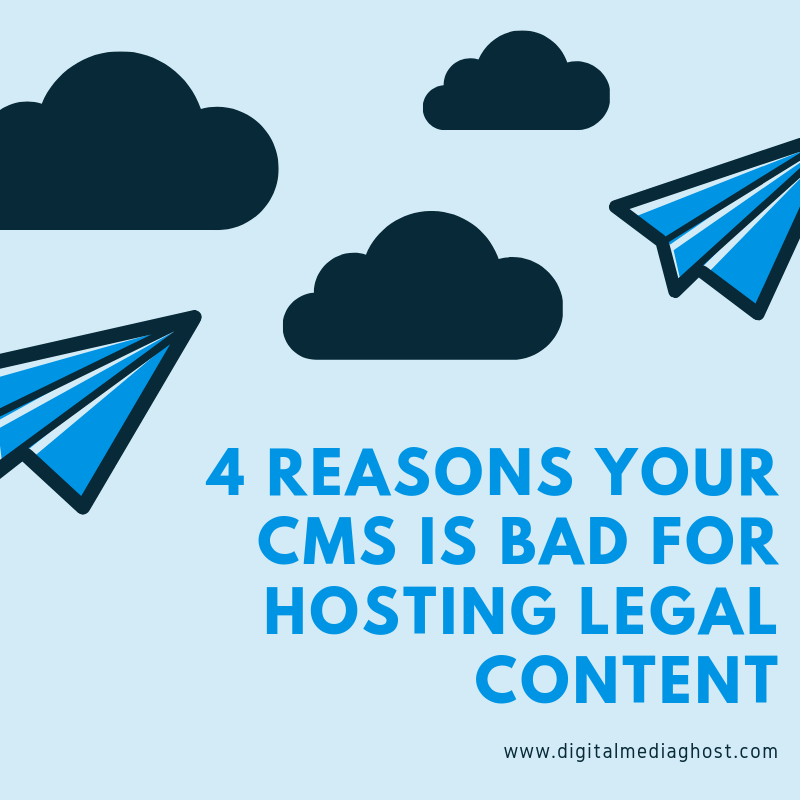A CMS is often chosen for the business benefits it brings to the marketing and development team, since that is who it is designed to be used by. The legal team typically plays no role in the purchase and is often an afterthought. But problems arise when legal content is hosted on your CMS. At the end of the day, a judge or lawyer is not going to care that the legal team did not have a say in purchasing the system. Legal content can include many things such as terms of use, disclaimers, privacy policies, and refund policies. Whatever it is, legal content is necessary to protect a business from unnecessary risk. But the protection it provides is only as good as its format and presentation. There are four major reasons a CMS is not the ideal platform to host legal terms. #1: Record Keeping A CMS will track changes made to a website over time. Changes made to legal content often fall outside of what is tracked by the CMS, as the legal content is typically kept in text files. It is hard to keep track of records if they are not there, and staying up-to-date on all changes made is crucial. But software exists that allows companies to better track the changes made to any legal content that a company hosts. #2: Placement of Legal Terms Any legal content must be disclosed to every customer. While a CMS can certainly present the legal content, the design and placement usually make it difficult to find, let alone navigate. For example, an obscure tab might lead to another tab that displays a link which says, “Website Terms.” Or worse, it might end up buried in the footer of the website in a color that matches the website background. This is particularly important to note because burying your browsewrap or clickthrough might leave them unenforceable. Lack of constructive notice that the use of a website is subject to legal terms can be disastrous. Legal content that is hard to find and difficult to navigate is of little value to a business trying to protect itself. #3: You Need Proof Should the need arise for a business to enforce its terms, it will need to provide evidence that a user accepted their legal agreements. A CMS won’t be able to provide a listing of who signed the legal agreements, and this is a legal team’s worst nightmare. Even if a CMS does a decent job of hosting legal content, it certainly is not going to create any sort of self-contained, durable record of that legal content to use when needed. Businesses therefore need a solution that will store the signed legal agreements and allow them easy access to the records so they can defend their company if a situation arises. #4: Integration and Updates The best place to present legal content and have it accepted by a user is during a clickthrough process -- registration forms, opt-ins, check-out flows. However, a CMS is of little help when integrating legal content into a clickthrough process. What’s worse, there is no fast and inefficient way to make updates to your legal content, which needs to be updated regularly. The legal team can save time and money by finding a better host that allows them to easily update the content of the legal agreements, without getting developers involved. Content management systems are great, but unfortunately, they aren’t the best option for hosting legal content. It can lead to a world of trouble for a legal team and ultimately puts the business at risk. Consider solutions designed with the legal team in mind, and are built specifically to manage and track website legal content. These solutions will implement best practices for design, assist in publishing legal content and store information from clickthrough agreements, allowing a business to obtain the contract acceptance it needs.
|
Categories
All
Archives
November 2023
|
|
Locations:
New Orleans, LA Nashville, TN |
|
Digital Media Ghost @2020
|




 RSS Feed
RSS Feed
